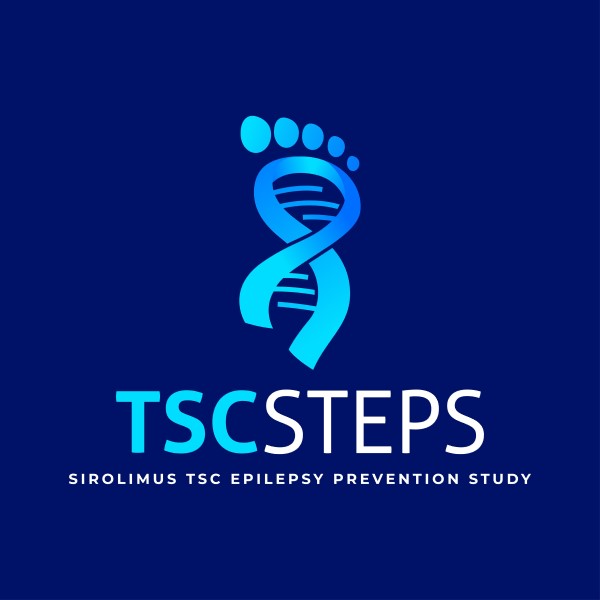Sirolimus Tuberous Sclerosis Complex Epilepsy Prevention Study (TSC-STEPS)
Overview
 Tuberous sclerosis complex (TSC) is a genetic disorder that causes benign tumors to form in various organs, including the brain, and can lead to seizures. Seizures are a common and often early symptom of TSC, caused by the abnormal electrical activity in the brain resulting from brain lesions known as cortical tubers. This trial will use a phase IIb, randomized, double-blind, placebo-controlled, multicenter clinical trial design to evaluate the safety and efficacy of early Sirolimus treatment to prevent or delay seizure onset in infants diagnosed with TSC.
Tuberous sclerosis complex (TSC) is a genetic disorder that causes benign tumors to form in various organs, including the brain, and can lead to seizures. Seizures are a common and often early symptom of TSC, caused by the abnormal electrical activity in the brain resulting from brain lesions known as cortical tubers. This trial will use a phase IIb, randomized, double-blind, placebo-controlled, multicenter clinical trial design to evaluate the safety and efficacy of early Sirolimus treatment to prevent or delay seizure onset in infants diagnosed with TSC.
Population of the study: Participants will be between the ages of 0-6 months at the time of enrollment or treatment initiation and meet clinical and/or genetic diagnostic criteria for TSC and have no prior history of seizures (clinical or electrographic) at the time of enrollment.
Intervention: Sirolimus (mTOR inhibitor)
Control: Surveillance monitoring EEGs every 6 weeks for the first year after birth
Outcome: Determinate if early sirolimus treatment will prevent or delay seizure onset on infants diagnosed with TSC
Trial Information
Target Enrollment: 64 infants with confirmed clinical or genetic diagnoses of TSC
Funder: U.S. Food and Drug Administration (FDA)
Duration of Study: December 2021 to December 2027
Research Team
Principal Investigator

Co-Investigators
- Shelley Varnado, MD
- Laura Farach, MD
- Mary Kay Koenig, MD
Research Coordinator
Mariam Lugo Noguera
McGovern Medical School at UTHealth Houston
6431 Fannin, MSB 3.149
Houston, TX 77030
(p): 713-500-6350
Links
Back to Medical Genetics Clinical Research


